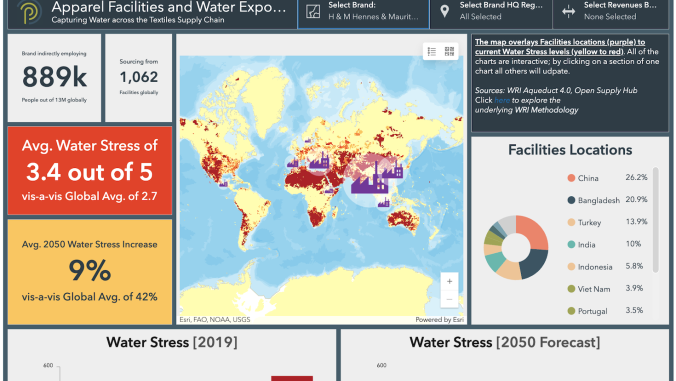VERGE SF 2013 day one: 'Bigger than the Internet'
<p>What do distributed systems and sharing really have to do with corporate sustainability?</p>

Paul Hawken and Joel Makower
SAN FRANCISCO -- Our VERGE SF event kicked off Tuesday with a lot of buzz about the ways the so-called sharing or collaborative economy can disrupt existing business models and drive sustainability.
VERGE, in case you’re new to GreenBiz, is our name for the places where sustainability and technology converge. It’s not just about cleantech, smarter supply chains, resilient cities or the sharing economy, yet it’s also all of the above.
“It’s about the holistic way thinking,” said VERGE program director Elaine Hsieh. GreenBiz group chairman and executive editor Joel Makower detailed these 5 key VERGE concepts on stage this morning.
Sharing economy and the ‘biology of technology’
The sharing economy is bound to be “bigger than the Internet," said Paul Hawken, founder of the Natural Capital Institute and pioneering sustainability thinker.
The information economy is part of ”a dopamine age,” he said in a standing-ovation keynote about the "biology of technology." You’re getting off as individuals and advertisers are getting off by knowing what you’re doing...In the big box atomistic economy of the past, there’s no trust at all.”
The emerging collaborative economic models, however, are about services rather than physical products -- and what you're sharing and building is trust, Hawken said. After all, "all of nature is about relationships." Hawken sees a huge values shift underway.
“A generation is saying, we watched our parents work and work and accumulate and accumulate with the hope some day they could not work and enjoy what they’ve accumulated,” he said.
Hawken decries the “narcissism of failure” around global problems, saying that people tend to point to the world’s woes as a prelude to pitching their own idea for fixing something. However, it’s not mere failure that causes an ecological and social breakdown, but something more powerful, “like a huge wave breaking on the shore,” he said. And that wave is “the momentum of money concentrated in dysfunctional governments, an overall “take, make-waste system, and you can go on and on.”
He offers some hope, however, to counteract the “violent” technologies that violate the planet. Green chemistry and biomimicry involve “a relationship with the world that is harmonious and collaborative but not in a sentimental way,” he said. And there’s promise in solutions bubbling up from cities.
But Hawken sees corporations playing a lesser role here. A company still needs to produce a car to enable people to share it and drive it. That, in essence, casts the business as “part of the supply chain in the collaborative economy," as Makower put it.
B2B collaborative economy
Taking a different tack, analyst Jeremiah Owyang sees the business-to-business arena as a whole new level of the collaborative economy that’s just beginning to be explored. He recently launched Crowd Companies, a somewhat stealth venture into this space.
You hear a lot about what sharing economy services mean to individual consumers. After all, so many of them are about peer-to-peer transactions, whether it’s sharing a ride (Lyft) or a home (AirBNB).
Yet B2B opportunities are all about turning a product into a service, expanding a service to a marketplace, and then empowering a marketplace to build products. Examples already abound in the marketplace, such as selling software as a service instead of on a DVD, or offering cars to rent instead of own. And big companies are increasingly working with upstarts and listening to input from the public to build their offerings.
There’s more detail from Owyang’s talk in Jonathan Bardelline’s story, “ How any company can join the collaborative economy.” (For more, check out this profile by GreenBiz senior writer Heather Clancy from earlier this year.)
What's ahead
As the collaborative economy is in its fledgling stages, both unintended consequences and untapped opportunities lie ahead, as discussed in a session about the “shareable city.”
It all depends on the location. One city may support AirBNB to help fill up vacant buildings, while another seeks to ban it for reducing the supply of apartments.
Providing work space to increasingly mobile workers (25 percent of the workforce!) as well as enabling job-sharing among marginalized workers could be among the next frontiers, added April Rinne, chief strategy officer of the Collaborative Lab.
An audience member wondered how to encourage people whose lifestyles are neck-deep in suburban sprawl to adopt sharing services.
“We’re not gonna have that problem,” said Molly Turner, director of public policy for AirBNB. “It’s gonna be an inverse problem and it’s not gonna be a choice.” As the poor get pushed out of cities, “they don’t have the resources not to share. They’re forced to share.”
Logan Green, founder of ride-sharing service Lyft, thinks that new funding rules enabled by President Obama's American Jobs Act can foster startups that might otherwise be ignored by Silicon Valley venture capitalists.
"investors fund what they would use," he said. "A lot of companies cater to wealthy older white guys. That element is gonna change significantly when you have the public making the financing."
Image of Paul Hawken and Joel Makower by Goodwin Ogbuehi, GreenBiz Group





